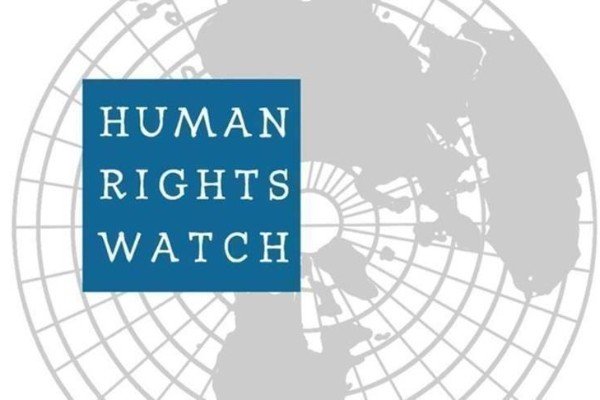
Israel’s alleged “apartheid” is more concerning than massacres and other major human rights abuses, according to HRW’s “Top Human Rights News of 2021.”
It says a lot about Human Rights Watch that the most-read article on its website in 2021 was a blood libel against Israel. The organization has long had a disproportionate fixation with the Jewish state.
So it’s no surprise that HRW’s “Top Human Rights News of 2021” is based on the organization’s most-read stories on its website.
Labelling this list as “news” is already a stretch. “Top Human Rights Buzz” would be more honest.
HRW’s top stories for 2021 included, for example, the rising number of drug war killings in the Philippines, an investigation into the Port of Beirut blast, a report on Chinese crimes against Uyghur Muslims, and Eritrean massacres of civilians in Ethiopia’s Tigray region.
But they were second-fiddle to an April 27 report about Israel. With the over-the-top title, A Threshold Crossed: Israeli Authorities and the Crimes of Apartheid and Persecution, and an ominous photo of a looming security barrier, how could it not be number one?
NGO-Monitor responded to that report, pointing out that it denied Israel’s legitimacy as a Jewish state by accusing Israel of apartheid policies and reducing security policies to “demographic objectives.”
NGO Monitor went on to describe HRW’s report as “part of a concerted campaign over the past 18 months to interject the term ‘apartheid’ into discourse about Israel.”
HRW’s report also recommended “Impos[ing] targeted sanctions, including travel bans and asset freezes, against officials and entities” as well as “Condition[ing] arms sales and military and security assistance to Israel.”
That’s music to the ears of HRW and the choir it preaches to.
And that’s hardly surprising. Consider the following:
• HRW executive director Ken Roth refuses to acknowledge Israel as a Jewish state.
• In a perversion of logic, Roth blamed Israel for a spike in British antisemitism.
• Omar Shakir, an HRW staffer deported from Israel for BDS activities, was consulted by the board of Ben & Jerry’s before it tried to boycott the whole of Israel. The boycott was downsized to Judea and Samaria after parent company Unilever intervened.
December is the time of year when websites trot out lists of their most-read articles, most-viewed movies, most-shared images, and so forth.
We like year-end look-backs because they often provide a sense of how far we’ve come. As opposed to a list of top stories chosen by an editor, a roundup based on most popular content implicitly emphasizes the readers. The website’s subliminal message is, “It’s not about us. Here’s what you were reading.”
These lists are easy to write: For each article on the list, there’s a paragraph or two explaining what the story was about and why it resonated with the website’s community. It may include follow-up information. But the key is to link to the original article because this is an opportunity to squeeze more web traffic to it.
For most websites, that’s an innocent formula. But for HRW, top content is an opportunity to reinforce disinformation, blood libels and more.
Other non-governmental organizations will have an axe to grind with Israel after it blacklisted six Palestinian NGOs for having ties to the Popular Front for the Liberation of Palestine terror group. So don’t be surprised to see more lists rehashing old content to bash Israel as 2021 comes to an ed.
And that’s a shame for Uyghurs, the people of Tigray, and everyone else on the HRW list in more dire straits than the Palestinians.
(United with Israel).